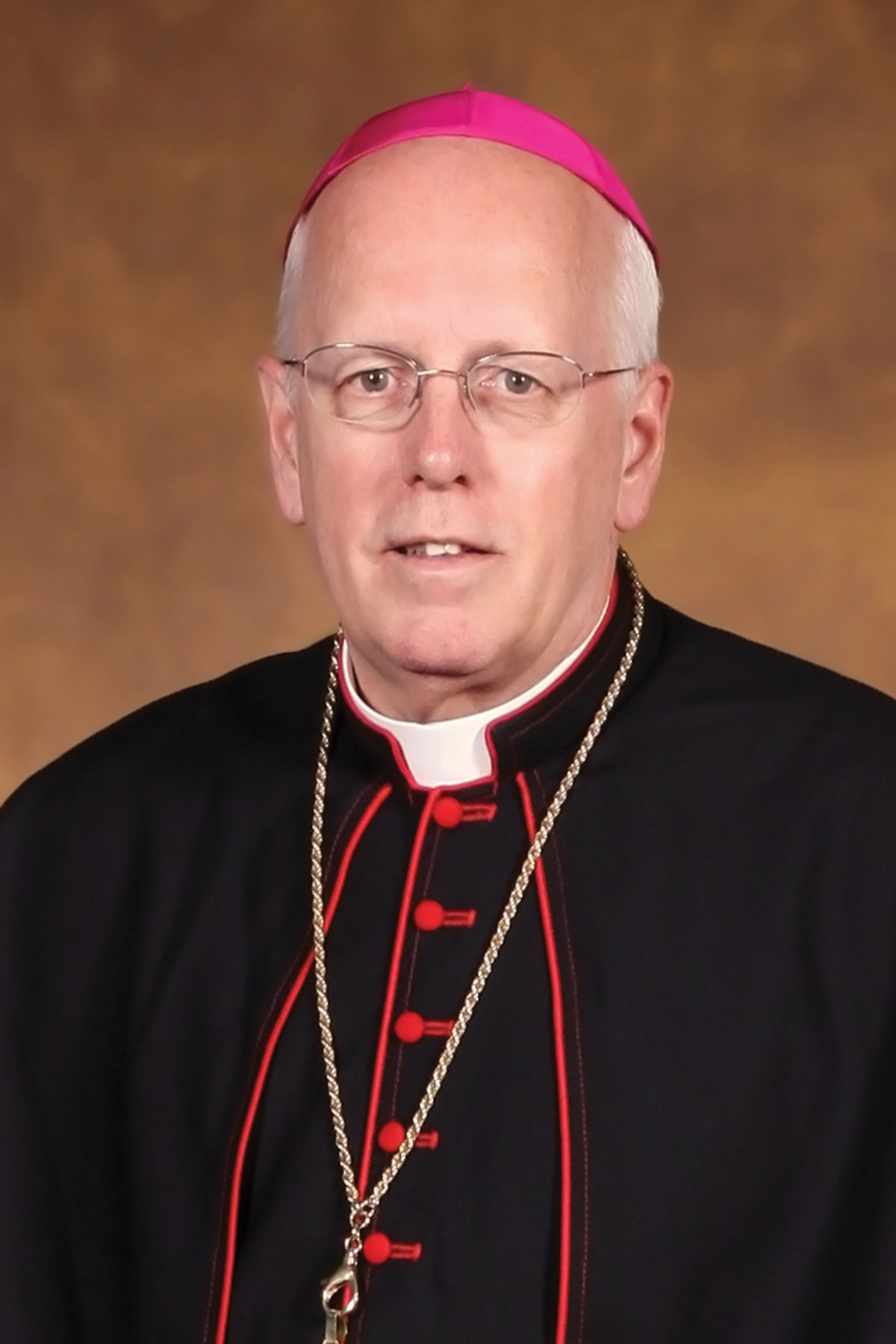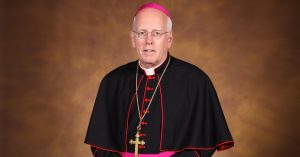
As I near the end of my privileged time as Bishop of Sioux Falls I continue to share with you themes that have guided me as reflected in my columns in The Bishop’s Bulletin over the years.
Below are two edited columns on the importance of prayer at the center of our lives and the opportunity to allow the Holy Spirit to guide and uplift us.
From the May 2008 edition of The Bishop’s Bulletin:
When I was rector of St. Raphael Cathedral in the Diocese of Madison in Wisconsin, my practice was to hear confessions immediately before the 5 p.m. daily Mass, except on Holy Days when additional preparation for the Mass was needed. At the time I was the only priest assigned to three parishes. A notice was posted on the confessional which read: “No Confessions Today” to remind the faithful and not inconvenience anyone. Someone decided to improve this notice; it then read, “No Confessions Today BECAUSE YOU ARE LAZY”.
My first reaction was to be taken aback, followed by this person really needs the sacrament. But then I wondered if God was sending me a message.
Dictionary.com gives three definitions to lazy: 1. disinclined to action or exertion, adverse to labor, idle, shirking work; 2. inactive, slothful, slow, sluggish; 3. wicked, vicious. Someone thought that of me? Could it be true? Sometimes we can be lazy by being busy. That is why regular prayer is so essential.
I often use the capital sins as a source of evaluation. Among them is sloth or acedia. I ask myself if this day I have been shirking from or sluggish in my prayer life which sustains the rest of my life.
The Catechism describes prayer as a battle. The Compendium of the Catechism tells us why:
“Prayer is a gift of grace but it always presupposes a determined response on our part because those who pray ‘battle’ against themselves, their surroundings, and especially the Tempter who does all he can to turn them away from prayer. The battle of prayer is inseparable from progress in the spiritual life. We pray as we live because we live as we pray. (572)
“Distraction is a habitual difficulty in our prayer. It takes attention away from God and can also reveal what we are attached to. Our heart therefore must humbly turn to the Lord. Prayer is often affected by dryness. Overcoming this difficulty allows us to cling to the Lord in faith, even without any feeling of consolation. Acedia is a form of spiritual laziness due to relaxed vigilance and a lack of custody of the heart. (574)
I must admit that on occasion I suffer from all three of those difficulties in prayer; I am engaged in the battle, especially while living in a culture that is so filled with activity, noise, judgmentalism and the tendency to compartmentalize our spiritual from our workaday world. Maintaining our relationship with Christ is a 24-hour mission.
St. Therese of Lisieux put it so simply, as was her way, and so beautifully: “For me, prayer is a surge of the heart; it is a simple look turned toward heaven, it is a cry of recognition and of love, embracing both trial and joy.”
She also wrote a moving poem entitled My Song of Today which includes this truthful and challenging verse which offers this humbling perspective.
“My life’s a jot of time, an hour that comes and goes; my life – this moment; now – escapes and runs away. To give You while on earth, O God, the love one owes, I’ve got . . . only today.” And so do we.
As this long winter comes to an end and the busyness of the world surrounds and entices us, may we recall the model of Jesus in prayer and the example of His sacrificial love about which this Easter season reminds us to give the love one owes Him today.
That person who edited the notice on the confessional got my attention. I am grateful for it. In response, I began to hear confessions after Mass.
From the June 2009 edition of The Bishop’s Bulletin:
Spring is a wonderful time of year as green overwhelms the once drab countryside and purple and pink flowering shrubs lift our spirits.
A few years ago there was a beautiful tree outside my window with its branches laden with blossoms. A strong spring storm came through and toppled the tree. Examination showed that while there was an appearance of health on the outside, the tree was weak on the inside, the wood soft and moist. The beautiful exterior hid the interior decay that inevitably resulted in its destruction.
We are a culture that tends to judge value and beauty on the exterior. Appearance aids and cosmetic surgery are billion dollar industries even in times of economic uncertainty when many do not have the basics to live healthy lives. Financial statements are concocted to impress while the hard-earned investments of others are squandered. Slick publications and glitzy television shows, including some that are religious based, preach instant gratification, often at the expense of demeaning others.
We in the Church can get caught up in the exterior as well. To hold peoples’ interest liturgies can become entertainment rather than prayer and worship. Devotions and social causes can become ends in themselves rather than ways to respond to the call of Christ to love others as he has loved us. Catholic identity can be sacrificed for popularity or public acceptance. It leads to a softening of the core of institutions and individuals that can result in interior decay, and thus more vulnerable to the storms of life.
This time of year we celebrate the Solemnities of Pentecost and the Most Blessed Trinity, recalling the core mystery of our faith, one God in three persons and the gift of the Holy Spirit to guide and counsel. They are opportunities for us to shore up our interior spiritual lives, seeking to better live externally the gift of the Holy Spirit we have received internally at baptism and confirmation.
Grounded in the love of Christ, we can call upon the Spirit to strengthen us as we confront what the secular culture urges us to do, to seek and how to behave. The Spirit offers the gifts of wisdom, understanding, counsel, fortitude, knowledge, piety and fear of the Lord. They can bring us perspective beyond appearance, patience to endure our crosses and withstand temptations, the humility to trust in God’s will and way, and so to live with the hope won for us on the decidedly “unbeautiful” cross.
As we age and experience, our exteriors will change no matter what new miracles may be advertised. When we “topple over”, may it be said that there was a beautiful person not because of how we looked but because of how we allowed the Holy Spirit to nourish and guide us.

